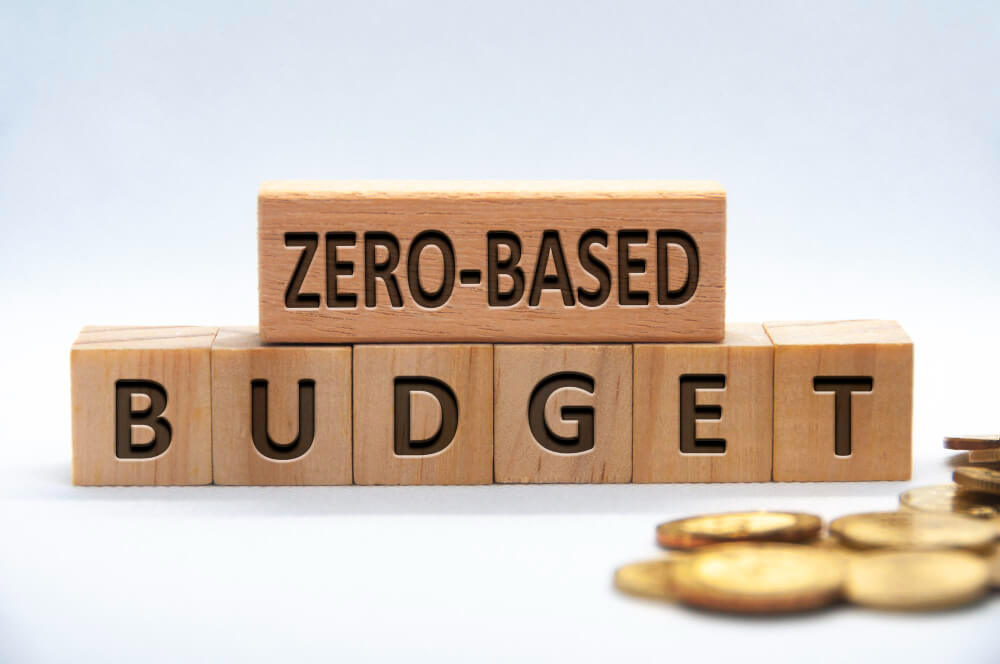The word “budgeting” often conjures images of restrictive spreadsheets, endless sacrifices, and a feeling of financial deprivation. For many, the idea of creating and sticking to a budget is a daunting task, a chore to be avoided rather than a tool to be embraced. However, in the modern financial landscape, the key to building wealth and achieving your dreams is a complete overhaul of this mindset. The traditional approach of tracking expenses and hoping for the best is being fundamentally transformed by a new and powerful paradigm: zero-based budgeting. This is not a restrictive plan; it is a strategic and intentional approach to money management that gives you a clear picture of where every dollar is going, allowing you to make conscious choices that align with your long-term goals. The benefits of a zero-based budget are profound, impacting everything from your savings and your debt to your mental clarity and your emotional well-being. This extensive guide is designed to demystify the process, providing a comprehensive roadmap for anyone to understand its core principles and the practical techniques that are redefining what it means to be financially successful.
The Zero-Based Mindset
At its core, zero-based budgeting is a mindset. It’s a shift from a reactive approach to money—spending first and saving what’s left—to a proactive one. The fundamental principle is simple: every dollar you earn is assigned a specific job. The simple formula is: Income – Expenses – Savings – Debt Repayment = 0. This ensures that you are in complete control of your money, rather than wondering where it all went at the end of the month. It’s an intentional approach that gives you a clear picture of your cash flow and empowers you to make conscious spending decisions that align with your long-term goals.
A. The Difference Between Zero-Based and Traditional Budgeting
This is a critical distinction. A traditional budget is often a passive process of tracking expenses and trying to stay within a set of rules. The focus is on what you can’t spend, and the end result is often a feeling of guilt and a feeling of failure. Zero-based budgeting, on the other hand, is not a restrictive plan. It is a philosophy that is focused on a commitment to a set of principles, such as listening to your body, honoring your hunger, and savoring every bite. The focus is on how you spend, not just what you spend.
B. The Psychology of Money
Our relationship with money is often a complex and emotional one. We spend for a variety of reasons, from a feeling of boredom and a feeling of stress to a feeling of celebration and a feeling of comfort. A person who is using a zero-based budget is an individual who has a deep understanding of their own emotional relationship with money. They can identify a feeling of boredom or a feeling of stress and can choose to address that feeling with a non-monetary solution, such as a walk, a conversation with a friend, or a meditation.
C. The Power of Intentional Spending
The new approach to money management is a recognition of the profound power of intentional spending. The money we spend can have a profound impact on our mental and physical well-being. A zero-based budget is a powerful tool for a person who wants to be intentional with their spending. They can choose to spend their money on experiences that bring them joy, on a lifestyle that aligns with their values, and on a future that they are building with their own hands.
The Practical Steps of a Zero-Based Budget
The journey to a zero-based budget begins with a series of simple, practical steps that can be integrated into your daily life. The goal is to take control of your money, to be present in the moment, and to reconnect with your financial goals.
- A. List All Your Income Sources:The first step in a zero-based budget is to list all your income sources. This can include your regular salary, a side hustle, a variety of bonuses, and any other sources of income. The goal is to have a clear and a comprehensive overview of all the money that is coming into your life.
- B. List All Your Expenses:The next step is to list all your expenses. This can include your fixed expenses, such as rent, utilities, and a variety of subscriptions, and your variable expenses, such as groceries, entertainment, and a variety of other discretionary expenses. The goal is to have a clear and a comprehensive overview of all the money that is going out of your life.
- C. Give Every Dollar a Job:This is the core principle of a zero-based budget. The simple formula is: Income – Expenses – Savings – Debt Repayment = 0. The goal is to give every dollar a job, whether it’s for a fixed expense, a variable expense, a savings goal, or a debt repayment. A dollar that does not have a job is a dollar that will be spent on a variety of unnecessary things.
- D. Track Your Spending:A zero-based budget is a living document that must be updated and maintained. You should track your spending on a daily or a weekly basis and update your budget accordingly. A variety of apps and software, such as YNAB (You Need A Budget), can be used to automate this process and to provide a variety of insights into your spending habits.
- E. The Power of a Side Hustle:A side hustle is a powerful tool for a person who is on a zero-based budget. A side hustle can provide a second stream of income that can be entirely allocated to a savings goal or a debt repayment. It’s an effective way to break the cycle of living paycheck to paycheck and to create a surplus.
The Profound Benefits of Zero-Based Budgeting
The benefits of a zero-based budget are not just physical; they are also mental, emotional, and spiritual.
- A. Financial Clarity and Control:A zero-based budget is a powerful tool for a person who wants to have a clear and a comprehensive overview of their finances. It is a document that provides a sense of clarity, a sense of control, and a sense of a sense of empowerment.
- B. Accelerated Savings and Debt Repayment:A zero-based budget is a powerful tool for a person who is looking to accelerate their savings and their debt repayment. By giving every dollar a job, you can ensure that you are consistently working toward your financial goals.
- C. Reduced Stress and Anxiety:The financial burden of a lack of a clear plan can be immense. By creating a zero-based budget, you will experience a profound sense of peace and a dramatic reduction in financial stress.
- D. A Deeper Relationship with Money:A zero-based budget is a journey of self-discovery and a journey of a deeper relationship with money. It is a journey that will lead you to a greater appreciation of money, a greater understanding of your own spending habits, and a greater sense of financial well-being.
The Challenges and the Road Ahead

The path to a zero-based budget is not without its obstacles. Several significant challenges must be addressed for this vision to be fully realized.
- A. The Challenge of Discipline:A zero-based budget requires a commitment to a variety of disciplines, such as a commitment to tracking your spending and a commitment to updating your budget on a regular basis. A person who is new to budgeting should start with a small, strategic step and gradually increase their commitment over time.
- B. The Risk of All-or-Nothing Thinking:The most common mistake a person makes in a zero-based budget is a mindset of all-or-nothing thinking. They believe that if they miss a budget once, they have failed. This is a mindset that can lead to a complete failure. The key to a long-term, sustainable budget is a mindset of flexibility, compassion, and a commitment to a new identity, one small, strategic step at a time.
- C. The Importance of a Professional:While a variety of budgeting techniques can be done on your own, they are not a substitute for professional financial advice. A person who is new to budgeting should always consult with a financial advisor before they make a variety of investment decisions. A professional can provide a person with a personalized plan that is safe and effective.
Conclusion
Zero-based budgeting is not a futuristic concept; it is a timeless and profound practice that is being rediscovered in our modern world. It is a philosophy that is challenging the traditional, reactive approach to money and is replacing it with a strategic, intentional, and systematic approach that is built on a foundation of a deep understanding of our cash flow, our spending habits, and our long-term goals. This revolution is creating a world where a person can use a variety of strategies to live a life that is not only financially successful but also disciplined, intentional, and deeply fulfilling.
The impact of this transformation is profound and far-reaching. It is empowering individuals with a new level of control over their own finances, providing a sense of peace, and making financial success more accessible and more effective than ever before. For financial professionals, it is forcing a necessary evolution, pushing them to embrace innovation and to focus on what they do best—providing a compassionate and human-centric service.
While significant challenges remain, particularly in the areas of discipline, a rigid mindset, and the cost of a financial professional, the trajectory is clear and irreversible. The future of money management is a world where a person is a proactive and engaged partner in their own well-being, and a financial advisor is a strategic and a preventative guide. The time to embrace this revolution is now, and your future self will thank you for it.










